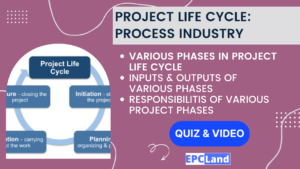Introduction
The dynamic world of oil and gas projects demands careful attention to contractual agreements. A well-structured contract is the cornerstone of a successful project, while inadequate clauses can lead to complications, delays, and financial losses. In this article, we’ll delve into the essential contract clauses that should be avoided in oil and gas project feeds, ensuring smoother project execution and minimizing potential pitfalls.
Table of Contents
Avoid These Contract Clauses in Oil and Gas Project Feeds
When it comes to contract clauses in oil and gas projects, it’s imperative to be vigilant and ensure the terms align with your project goals. Here are some contract clauses you should steer clear of:
1. Unilateral Amendment Clause
This clause grants one party the authority to modify the contract terms without the consent of the other party. Avoid this clause as it can lead to unexpected changes that may not align with your project’s objectives.
2. Indefinite Scope Creep Clause
An unclear or open-ended scope can result in scope creep, where additional work is demanded without proper compensation. To maintain control over project scope, it’s essential to have a well-defined scope clause.
3. Ambiguous Force Majeure Clause
In the unpredictable oil and gas industry, force majeure clauses are crucial. However, an unclear force majeure clause can lead to disputes regarding unforeseen events. Ensure this clause is detailed and comprehensive.
4. Vague Payment Terms
Payment delays can hinder project progress. Avoid contracts with vague payment terms or those that link payments to unclear milestones. Clearly outline payment schedules and conditions.
5. Excessive Liquidated Damages
While liquidated damages protect against delays, excessively high penalties can be financially crippling. Ensure the liquidated damages clause is fair and reasonable in relation to the project’s scale.
6. One-Sided Termination Rights
Beware of contracts that grant termination rights only to one party. A balanced contract should provide termination rights to both parties, ensuring mutual respect and protection.
7. Unspecified Intellectual Property Rights
In oil and gas projects, intellectual property can be valuable. Avoid contracts that don’t clearly define the ownership and usage rights of intellectual property created during the project.
8. Inadequate Dispute Resolution Clause
Disputes are inevitable, but a poorly constructed dispute resolution clause can lead to costly legal battles. Opt for contracts that include a detailed and effective dispute resolution mechanism.
9. Absence of Performance Metrics
Contracts should outline specific performance metrics that both parties agree upon. Clauses lacking these metrics can lead to disputes about the project’s success criteria.
10. Limited Liability for Negligence
Don’t agree to contract clauses that limit liability for negligence. It’s essential to hold both parties accountable for their actions to ensure a safer and more responsible project environment.
Don’t miss the Complete Course on Piping Engineering: Check Now
By EPCLand.com
LSI Keyword: Ensuring Success and Mitigating Risk in Oil and Gas Contracts
Insights from Expert Experience
Navigating through contract clauses in the oil and gas industry requires expert insights. According to industry veterans, understanding the significance of each clause is paramount to project success. Jim Thompson, a seasoned project manager, states, “I’ve witnessed projects stall due to poorly drafted contract clauses. It’s crucial to meticulously review and negotiate terms that align with your project’s goals.”
Frequently Asked Questions (FAQs)
Q: Can I negotiate contract clauses after they’ve been initially agreed upon? A: Yes, negotiation is possible even after the initial agreement. Open communication is key to ensuring all parties are satisfied with the terms.
Q: How can I ensure that the force majeure clause covers all possible unforeseen events? A: Collaborate with legal experts to draft a comprehensive force majeure clause that outlines a wide range of potential unforeseen events.
Q: Are there instances where liquidated damages are unreasonable? A: Yes, if the damages are disproportionate to the actual harm caused by a delay, they can be deemed unreasonable and unenforceable in court.
Q: Should I accept a contract with vague payment terms to secure the project? A: It’s advisable to avoid vague payment terms, as they can lead to financial uncertainties and project delays.
Q: What’s the importance of a clear intellectual property rights clause? A: A clear clause ensures that the ownership and usage rights of intellectual property are well-defined, preventing disputes in the future.
Q: Can disputes be resolved without resorting to legal action? A: Absolutely, a well-structured dispute resolution clause can encourage parties to resolve conflicts through negotiation or mediation before pursuing legal action.
Conclusion
In the intricate realm of oil and gas projects, contract clauses play a pivotal role in determining the trajectory of success or failure. By avoiding the mentioned contract clauses and leveraging expert insights, project stakeholders can establish solid foundations for projects, ensuring they unfold smoothly while minimizing potential risks. Remember, a well-crafted contract is not just a legal obligation; it’s a blueprint for success.
Bolded Conclusion: In the complex world of oil and gas projects, the significance of well-structured contract clauses cannot be overstated. Avoiding detrimental clauses and embracing industry expertise empowers projects to thrive, secure in the knowledge that their contractual foundation is strong.
Recommended courses (Published on EPCLand):
- Basics of Piping Engineering
- Piping Layout Engineering
- Piping Material Engineering
- Piping Stress Analysis
- Complete Course on Piping Engineering
- Material Requisitions
- Piping Material Specifications
- Valve Material Specifications
Related Video
Attempt Quiz
Question 1:
What is a common issue with “No Damages for Delay” clauses in oil and gas project feeds?
Explanation: “No Damages for Delay” clauses can lead to costly and time-consuming litigation because delays can occur due to factors beyond the contractor’s control, leading to disputes over compensation.
Question 2:
Why should oil and gas project feeds avoid “Indemnity” clauses that are overly broad?
Explanation: Overly broad “Indemnity” clauses can shift excessive liability onto one party, leading to unfair distribution of risk and potential legal disputes.
Question 3:
What is a concern with “Liquidated Damages” clauses that are not carefully defined?
Explanation: “Liquidated Damages” clauses that are not carefully defined can lack enforceability, leading to disputes over the validity of the damages specified in the clause.
Question 4:
What potential issue can arise from “Pay-When-Paid” clauses in oil and gas project feeds?
Explanation: “Pay-When-Paid” clauses can result in delayed payment to subcontractors, potentially causing financial difficulties for those who provide services or materials on the project.
Question 5:
Why should “Change Order” clauses be clear and specific in oil and gas project feeds?
Explanation: Clear and specific “Change Order” clauses provide flexibility for modifications while avoiding disputes by outlining the procedures and responsibilities for requesting and approving changes to the project scope.



